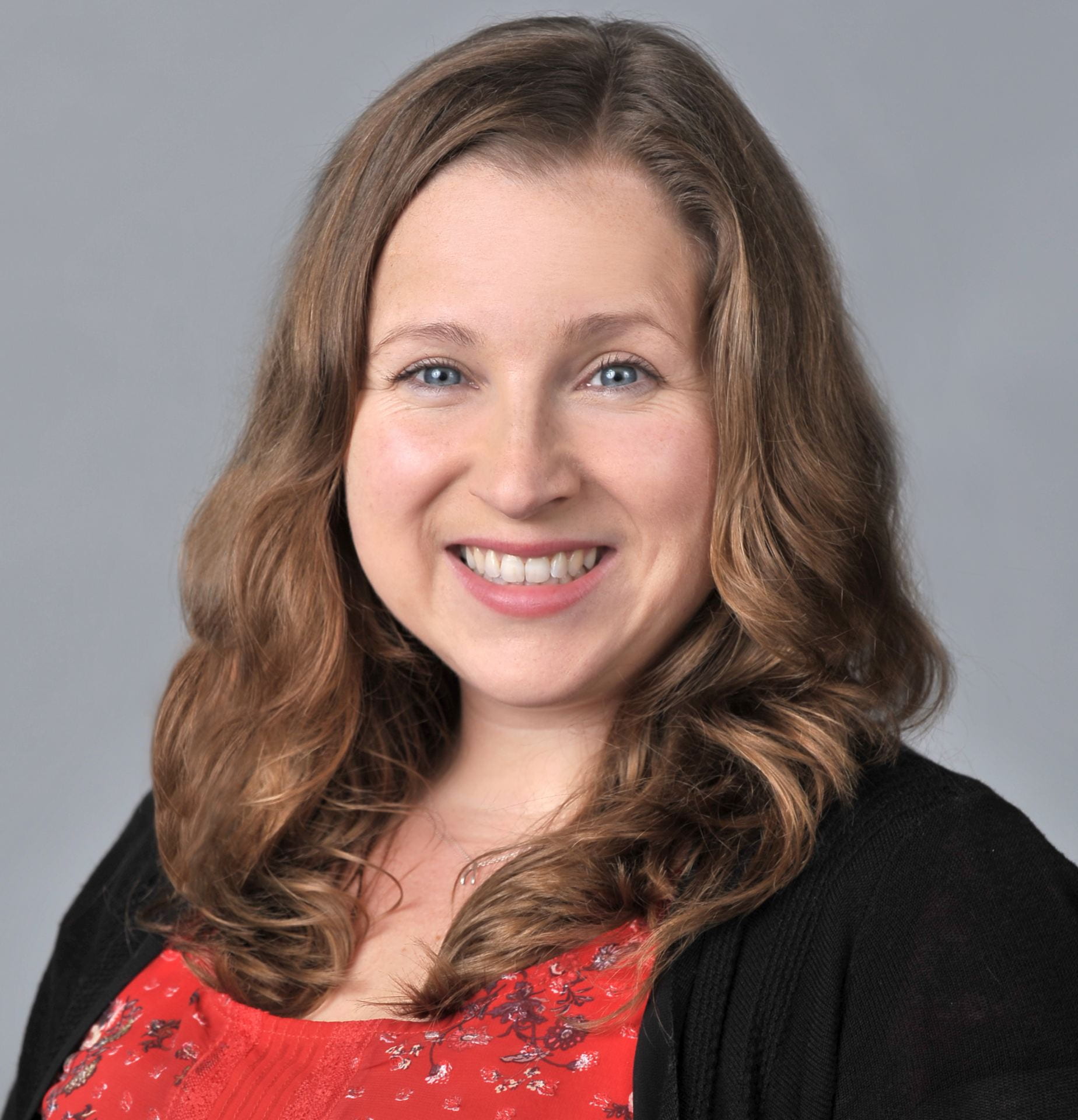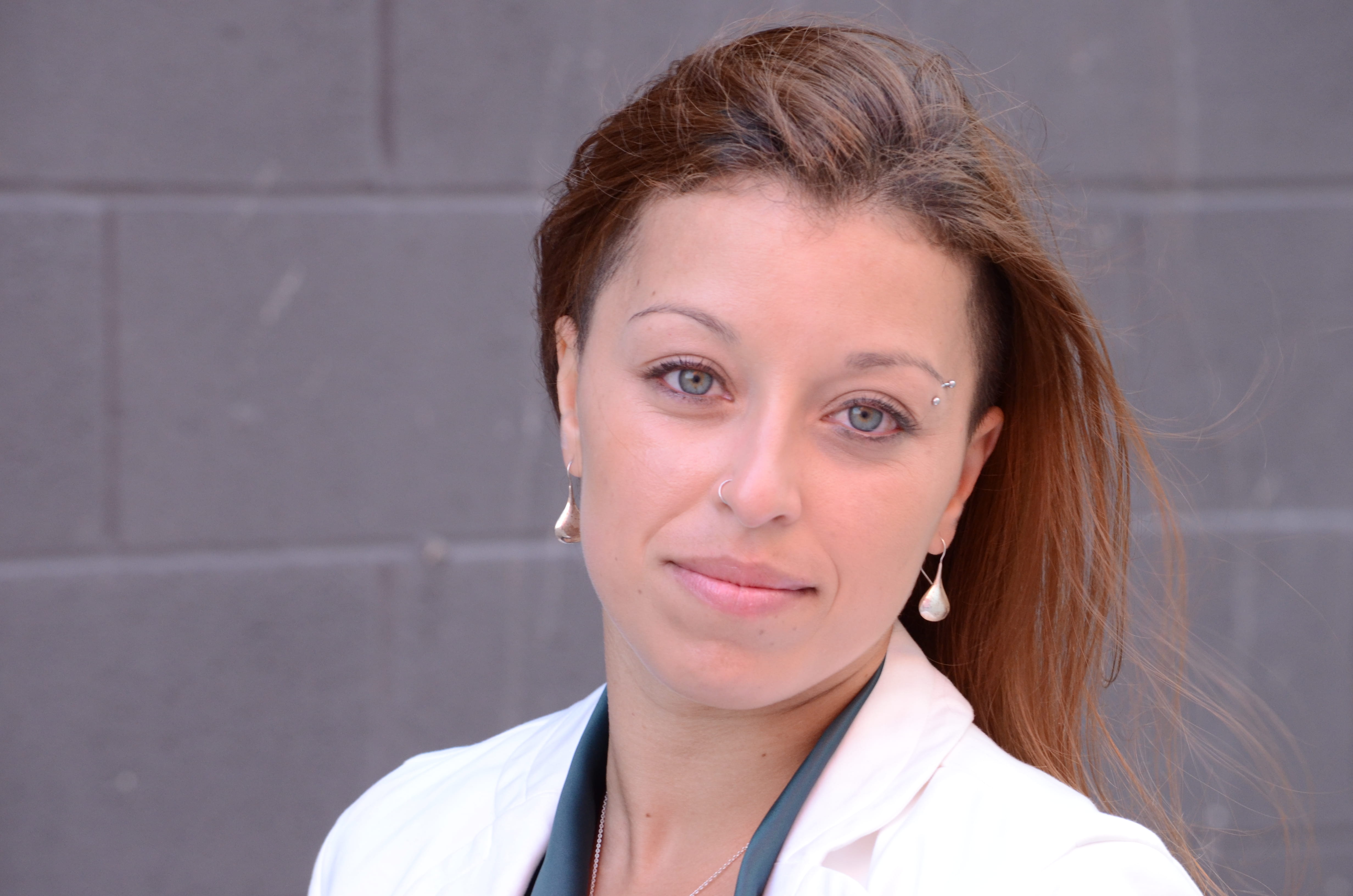Emerging Scholars Program Faculty Viewbook
Welcome to the Emerging Scholars Program Faculty Viewbook. Below are brief profiles of faculty who have long track records of supporting undergraduates and who have all expressed a willingness to mentor a student through this program. By clicking on one of the names below, you will learn the faculty’s school, department, areas of focus, and potential plans for next summer. If you see someone who you might be interested in working with, we recommend doing some additional research on them to learn more. Then, think about how your interests and their work might intersect. You will then be in a solid position to apply! Remember that Office of Undergraduate Research advisors are ready to help you with this process! More info on the Emerging Scholars Program can be found on its web page.
Emerging Scholar Program Faculty Viewbook
Abby Barefoot

NAME: Abby Barefoot
TITLE: Assistant Professor of Instruction
SCHOOL(S): Weinberg College of Arts & Sciences
DEPARTMENT(S): Legal Studies
WEB PAGE: https://legalstudies.northwestern.edu/people/core/barefootabby.html
FACULTY BIO:
Dr Abby Barefoot is an Assistant Professor of Instruction at the Center for Legal Studies. She received her Ph.D.in Women, Gender, and Sexuality Studies from the University of Kansas. Her research explores how people (often women and gender non-conforming individuals) try to make change within and beyond the prison system and how their activism constructs concepts like justice, punishment, safety, and accountability. Dr. Barefoot is trained as a qualitative researcher, and her research primarily uses interviews, participant observation, and content analysis. For example, her current book project examines transformative justice practices for sexual violence. Transformative justice builds upon prison abolition frameworks and uses community-based methods to offer immediate safety for survivors while developing nonpunitive accountability measures. Using participant observation and interviews, Abby unpacks the tensions, contradictions, and possibilities of practicing transformative justice as experienced by survivors, facilitators, and people who cause harm.
POTENTIAL SUMMER PROJECT SYNOPSIS:
Dr. Barefoot is working on a new project on an ongoing lawsuit against the California Department of Corrections and Rehabilitation (CDCR). This lawsuit seeks to stop the CDCR from enforcing California’s Transgender Respect, Agency, and Dignity Act (2020), which requires transgender, nonbinary, and intersex people incarcerated in California prisons to be placed in facilities according to their perception of personal safety, including placing them in a facility consistent with their gender identity if they request it. The lawsuit is spearheaded by a group of anti-trans feminists who argue they are advocating on behalf of cisgender incarcerated women and are concerned about how the act will change prison conditions for women. Dr. Barefoot is interested in unpacking how and why this group presents itself as advocates for incarcerated women. More specifically, how do they frame cis and trans women’s incarceration, and what do their legal and public relations strategies reveal about the intersection of feminism, carcerality, and anti-trans discourse? The project will answer this question by examining the legal documents associated with the lawsuit and the public relations materials released by the advocacy group.
DESCRIPTION OF RESEARCH-RELATED SKILLS THE STUDENT WILL DEVELOP:
Locating and organizing primary legal materials
The student will learn how to search for and access official court filings through public databases like PACER, as well as how to download, label, and catalogue these files so they can be easily retrieved later.
Gathering and managing public-facing advocacy materials
The student will practice collecting and organizing blog posts, press releases, policy statements, and media content produced by anti-trans advocacy groups. They will learn to keep these materials in an accessible format, with summaries and notes that make them easier to analyze.
Learning qualitative coding and content analysis using a codebook
This experience will provide the students with a structured approach to transition from collecting primary sources to producing a systematic analysis based on predetermined codes.
Synthesizing findings through note-taking and reflection
As they code and organize materials, the student will write short memos on patterns or surprising findings. This reflective practice develops the student’s analytical voice and prepares them to transition from being a research assistant to developing their own original arguments in a senior thesis or future research project.
DESCRIPTION OF THE STUDENT ROLE:
During the summer, the student will meet for 1–1.5 hours each week with Professor Barefoot to review progress, practice new skills together (e.g., how to apply coding to a document), set goals for the following week, and discuss any roadblocks or successes. The rest of the hours for the project will be spent on gathering and coding documents. This would include reading through the assigned documents and highlighting sections that fit into the codebook categories. For example, the student may tag a legal filing as referencing “women’s rights” or mark a press release as drawing on “victim advocacy” language. In addition, they will engage in data management and note-taking, where the student will maintain a shared spreadsheet that tracks which documents have been coded, what themes appear, and any initial observations through short reflective memos (a paragraph or two) about patterns or surprises noticed during the week. We will discuss memos and coding decisions during our weekly meeting
LOCATION REQUIREMENTS:
10% in person (a weekly meeting with me)
90% remote
Sarah Bartolome
NAME: Sarah J. Bartolome, PhD
TITLE: Associate Professor, Music Education
SCHOOL(S): Bienen School of Music
DEPARTMENT(S): Music Studies
WEB PAGE: https://www.music.northwestern.edu/faculty/profile/sarah-bartolome
FACULTY BIO: Dr. Sarah J. Bartolome is an Associate Professor of Music Education at Northwestern University. She earned degrees in music education from Ithaca College (BM), Northwestern University (MM), and the University of Washington (PhD). Dr. Bartolome’s scholarship in music education has been published in such journals as the Journal of Research in Music Education, Research Studies in Music Education, and the International Journal of Community Music. She is the author of World Music Pedagogy V: Choral Music Education (Routledge, 2019) and co-author of a forthcoming book on gender expansive music education (Routledge, 2026). Her research interests include singing for health and wellbeing, World Music Pedagogy, and gender expansive music education. At Northwestern, Dr. Bartolome serves as the head of the Lab for Music, Health, and Wellbeing and as the Co-Director of the Music for Childhood Wellbeing Initiative. She is also a Co-PI for the Fontan Choir Initiative and leads the NU Music and Health Faculty Working Group.
POTENTIAL SUMMER PROJECT SYNOPSIS: The Music for Childhood Well-being Initiative (MCWI) examines the use of music as an intervention for mitigating stress and increasing the well-being of children globally. A 2023-2024 pilot study explored the impact of an 8-week group singing and breathwork intervention on children aged 9-11 (N=67) in the US (n=27), England (n=20), and Mexico (n=20).Our interdisciplinary team integrated biometric, psychological, and behavioral methodologies to provide a holistic, biopsychosocial understanding of the impact of group singing and breathwork on children.
This study employs wearable, mechano-acoustic sensors to track heart rate variability (HRV) during sessions as a proxy for stress. Participants use an app (www.wellcheq.com) to report mood using emojis before and after sessions. Participants also complete the State-Trait Anxiety Inventory for Children at the beginning and end of each session to track changes in state anxiety. After sessions, participants are interviewed and a closing focus group is held after the final session. Two additional measures (Belonging Scale and Sense of Community Scale) are administered at the mid-point and end of each cohort to track emergent group cohesion.
Preliminary biometric analysis suggests a small trend in increased HRV from the beginning to end of sessions. Psychological and WellCheq data reveal trends toward decreased state anxiety more positive mood following sessions. No changes in sense of belonging or community are evident, perhaps owing to the structured activities which limit peer-to-peer interaction. Interview data revealed participants’ enjoyment of activities and reports of feeling “energized,” “relaxed,” or “chill” after sessions. Before sessions, students were more likely to report feeling “stressed” or “tired.” Through a $250,000 grant from the Cyrus Tang Foundation, eight additional cohorts of participants (n=80) are slated for AY2025-2026 (4 cohorts in China and 4 here in Evanston). We ultimately aim to provide evidence of how this music intervention might be used to enhance well-being among children around the world.
An adjacent project, the Fontan Choir Initiative investigates the impact of singing and breathwork on children with variant forms of cardiac disease. An interdisciplinary team of doctors, musicians, music educators, psychologists, and physical therapist collaborated to design a 16-week singing intervention (based on MCWI as described above). The Fontan cohort will run from January until June and will follow a similar protocol to the MCWI one described above.
RAs will be assigned to work on MCWI and/or Fontan cohorts according to their availability and interest.
DESCRIPTION OF RESEARCH-RELATED SKILLS THE STUDENT WILL DEVELOP: The Emerging Scholars Fellow will…
Work with child and family participants
Develop qualitative interview skills
Develop observation skills
Process and archive qualitative data
Collaborate with peers and mentors as an interdisciplinary research team member
DESCRIPTION OF THE STUDENT ROLE: During the summer, the student will work remotely to archive and process data and participate in research team meetings. We will potentially be running an early childhood cohort next summer which would entail some on-site participation, but this is not yet confirmed.
During the academic year, the Emerging Scholars Fellow will be on site weekly with the RA team to prepare the research space, greet the children and their families, apply mechanoacoustic sensors, administer weekly iPad-based surveys, and complete short debrief interviews with small groups of children. RAs will be onsite for approximately 3-5 hours per week. Immediately following each intervention, each RA will be responsible to processing, renaming, and archiving data in a shared folder. RAs will also be responsible for uploading their interview data into otterAI, initiating the transcription, cleaning the transcription, and adding the cleaned transcript to the shared folder before the next week’s session (1-2 hours per week). There will also be a weekly team meeting to address emergent challenges and answer questions.
LOCATION REQUIREMENTS: Summer work will be primarily online and can be scheduled according to the student’s availability. One weekly meeting will ensure good communication and understanding of weekly tasks. There may be an opportunity to participate in a summer research cohort with young children next year but that is not yet confirmed.
Elise De Los Santos

NAME: Elise De Los Santos
TITLE: Lecturer
SCHOOL(S): Medill School of Journalism, Media, Integrated Marketing Communications
DEPARTMENT(S): Journalism
WEB PAGE: https://www.medill.northwestern.edu/directory/faculty/elise-de-los-santos.html
FACULTY BIO: Elise De Los Santos is a lecturer for the Medill School of Journalism, Media, Integrated Marketing Communications. She has a B.S. from Medill, where she triple-majored in journalism, history, and English literature. She worked in various editing roles at the Chicago Tribune, starting out as a copy editor and rising to executive editor at RedEye before joining the Tribune copy desk, where she edited metro, investigative, politics and breaking news stories. She returned to Medill as a lecturer to teach reporting and newswriting, and now has also returned to the classroom as a student in the Rhetoric, Media, and Publics Ph.D. program at Northwestern. She’s interested in studying how language used to describe identities evolves over time, particularly in how news outlets and institutions adopt and use those terms.
POTENTIAL SUMMER PROJECT SYNOPSIS: Editing and publishing of students’ news stories, compilation and comparison of journalistic style guides, and finding correlating humanities-based research on terms of identity
DESCRIPTION OF RESEARCH-RELATED SKILLS THE STUDENT WILL DEVELOP: Exposure to humanities-based communication studies research, linking of theoretical concepts to practical usage, project management and organization skills
DESCRIPTION OF THE STUDENT ROLE: Researching new terms of identity being used in current news stories and social media posts (or even the student’s own experiences), and seeing how the term originated, circulates and if/how news publications are using it.
LOCATION REQUIREMENTS: Your work with me can be 100% remote, although you will need to be on-campus for the 8 weeks of the program. Check-ins via email, Zoom or in-person (or a mix of these three) are done as needed and regularly throughout the summer.
Mesmin Destin
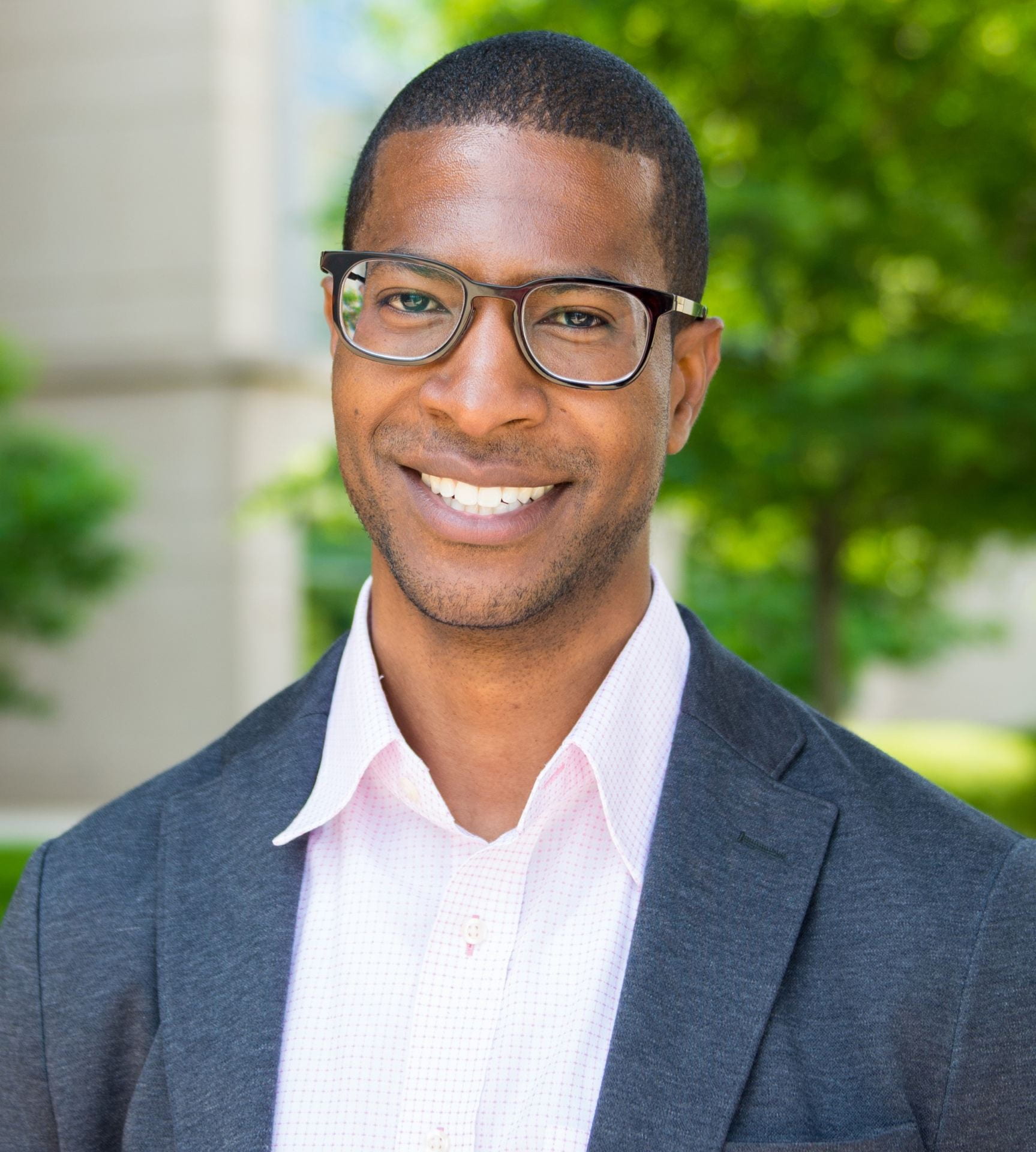
NAME: Mesmin Destin, Ph.D. (he/him)
TITLE: Professor, Faculty Director of Student Access & Enrichment
SCHOOL(S): WCAS and SESP
DEPARTMENT(S): Psychology and Human Development and Social Policy
WEB PAGE: https://www.ipr.northwestern.edu/who-we-are/faculty-experts/destin.html
FACULTY BIO:
Mesmin Destin is a professor in the Department of Psychology and School of Education and Social Policy here at Northwestern, in addition to a fellow of the Institute for Policy Research. He completed his PhD in Social Psychology at the University of Michigan in 2010 and has been back at NU as a faculty member since that time. He was also a Northwestern undergrad in the early 2000s. Now, as a faculty member, he spends most of his time working with students and conducting research about the factors shaping the experiences and outcomes of students from diverse socioeconomic backgrounds. His work carries implications for institutions and the development of learning environments that recognize and leverage student strengths and identities in ways that support motivation, achievement, and well-being. He is a founding co-director of the SESP Leadership Institute (SLI), and he is honored to now be collaborating with Student Enrichment Services (SES) and other offices to work to continue to improve the experiences of students on campus and beyond.
POTENTIAL SUMMER PROJECT SYNOPSIS:
We have three active projects in our lab that students might join. The first involves a study about how students respond to big social forces like capitalism through a series of experiments testing how these forces affect students’ motivation and well-being. The second dives deep into the experience of students who participate in summer programs before college, like the Summer Academic Workshop (SAW). The third tests how a variety of student programs and supports, like the Beacon Scholars program, affect their experiences and outcomes in college.
DESCRIPTION OF RESEARCH-RELATED SKILLS THE STUDENT WILL DEVLEOP:
Students will work closely with members of the lab to learn how research projects are developed, how different types of data are collected, and how results are analyzed to draw conclusions.
DESCRIPTION OF STUDENT ROLE:
The student will likely spend time gaining skills working directly with data, helping to prepare student surveys and interviews for analysis.
LOCATION REQUIREMENTS:
The work will take place primarily in person with office space provided on campus. There may be opportunities to complete some work remotely as the period progresses.
Alyssa Garcia
NAME: Alyssa Garcia
TITLE: WCAS Adviser/Associate Professor of Instruction
SCHOOL(S): WCAS
DEPARTMENT(S): Advising/ Gender & Sexuality Studies
FACULTY BIO: Dr. Alyssa Garcia is a first generation Dominican-Cuban Latinx, born and raised in New York City (who takes pizza very seriously). She received her BA in Cross-Cultural Psychology from Brown University and earned her PhD in Anthropology from University of Illinois, Urbana-Champaign. Prior to her arrival to NU, she taught at Pennsylvania State University and DePaul University. Her teaching and research interests include Latin American & Caribbean Studies, Ethnic-Latina/o Studies, Intersectionality, Critical Race Theory, Gender & Sexuality Studies, Feminist Ethnography, African Diaspora Studies, and Applied Anthropology.
POTENTIAL SUMMER PROJECT SYNOPSIS: Dr. Garcia’s manuscript project examines the intersections of race, gender, and sexuality in Cuba through an analysis of discourses of sex-work and the body. “Moral Discourses, Regulated Bodies: Blackness Amidst Sex, the State, and Subjectivity in Cuba,” is a historically grounded ethnography that traces chronologically the public supervision and state regulation of Black female bodies in Cuba. This project questions how the pursuit of equality is affected or inhibited by cultural beliefs about racialized and gendered bodies. How do the categories of difference that play out in the everyday lives of Black women reflect Cuba’s politics of transformation? With a multi-layered interdisciplinary feminist methodology, I utilize the body as a site of cultural production to demonstrate how notions of race, gender, and, are (re)produced by the state, as well as negotiated, resisted, and/or co-opted by women of color.
I provide an account of “the past in the present” by mapping out the consistency of gendered racial projects across different state orders on the island. By revealing the alignments, contradictions and continuities of the evolution of race, gender and sexuality in Cuba I argue that both structural AND cultural issues must be addressed, theoretically and practically, in efforts towards equality. This exploration of how Afro-Cuban women experience and translate revolutionary changes through their corporeality and their role in nation-making processes advances a broader anthropological understanding of race, intersectionality, and power in the Caribbean and the Americas at large.
DESCRIPTION OF RESEARCH-RELATED SKILLS THE STUDENT WILL DEVELOP: Participation provides several opportunities for hands-on applied learning that will demystifying the overall processes of research. Students will become exposed to and learn about the various facets involved in an interdisciplinary research project such as:
- finding/organizing sources, investigating references, utilizing online databases and library resources (locally and internationally), compiling references for a bibliography
- Conducting literature reviews, composing Reading notes, building an annotated bibliography, summarizing theoretical arguments and empirical findings, connecting case studies with larger trends in related scholarship.
- Learn concrete data collection skills including: participant observation, conducting interviews, transcription/translation, archival work
- Editing and writing skills
- Data analysis such as coding and indexing ethnographic notes
- theoretical introduction to frameworks of Intersectionality; an increased understanding of cultural anthropology and feminist methodologies; identify key debates on pertinent anthropological topics/methodologies;
- learn about ethnography, the necessary protocols/ paperwork required for human subjects research (IRB), interrogate issues of positionality, power, ethics, accountability and integrity in research
Overall students will learn the various nuances and steps of how to complete a project with many pieces. All of this will lay the groundwork for students to apply these skill so as to conceptualize, outline, conduct. and write their own developing research proposal/project of interest.
LOCATION REQUIREMENTS: Mostly in-person, but some work/meetings can be done virtually via zoom
DESCRIPTION OF THE STUDENT ROLE: Weekly or bi weekly meetings and a monthly lunch will occur to review/discuss progress, assess the research plan, check in about the pace/expectations, etc. ESP work includes
- reading chapter drafts of in-progress book manuscript,
- Conduct literature reviews, identify relevant sources, draft reading summaries
- Read/Update bibliography, , organize notes
- Proof read and Edit chapters
- Update citations, Translate quotes (if/when necessary); Indexing
- Read/code interview data
- Discourse analysis of films and popular culture items
Emerging Scholar Program Faculty Viewbook
Michelle Huang

NAME: Michelle N. Huang
TITLE: Assistant Professor of English and Asian American Studies
SCHOOL(S): WCAS
DEPARTMENT(S): English and Asian American Studies
WEB PAGE: https://english.northwestern.edu/people/faculty/huang-michelle.html
FACULTY BIO: Michelle N. Huang has research and teaching interests in contemporary Asian American literature, posthumanism, feminist science studies, the environmental humanities, and the medical humanities.
Her book, Racial Beings: Experiments in Asian American New Materialisms, is forthcoming with the ANIMA series at Duke University Press in March 2026. She currently working on a second project on Asian American racialization and biomedicine.
Michelle’s work appears in American Literature, Contemporary Literature, Journal of Asian American Studies, Amerasia, and American Quarterly, among other venues. A film essay she created on science fictional representations of Asian Americans is available for viewing online at the Smithsonian Asia Pacific American Center.
POTENTIAL SUMMER PROJECT SYNOPSIS: Student will assist me on my second book manuscript, The Secret Life of Race: Notes on the Asian American Biomedical Imaginary, a proposed book on the intersection of race, health, and biomedicine in contemporary Asian American literature. The “life” of The Secret Life of Race can be understood in three ways: 1) the life sciences, especially their contemporary permutations in biomedicine, 2) “life” in the sense of agency outside individual control, and 3) contemporary lived racialized experience. Because Asian Americans are overrepresented in professions of medicine, engineering, and the life sciences on one hand, and as upper-middle-class consumers on the other; analyzing scientific and literary work by Asian Americans is instrumental to understanding increasingly biomedicalized futures. However, the bulk of critical work on biomedicine does not use race as a primary analytic (and work that does rarely contemplates Asian Americans). The Secret Life of Race writes to this contradiction, revealing how racial difference underlies putatively postracial discourses of health and wellness. One chapter of this book-in-progress, on how postracial aesthetics mediates the asymmetrical relationship between precision medicine and environmental racism, has been published in American Literature. The student researcher will assist me with two other chapters, one that analyzes the literary genre of “beauty horror” through cosmeceutical skincare, anti-aging technology, and young Asian American women professionals, as well as one on gene editing, biometrics, and neo-eugenics.
DESCRIPTION OF RESEARCH-RELATED SKILLS THE STUDENT WILL DEVELOP: Constructing intellectual genealogies of concepts, managing research documents, identifying relevant materials.
DESCRIPTION OF THE STUDENT ROLE: Student should be interested in literary and cultural approaches to studying race. They will be assisting with assembling a bibliography of extant research, reading and annotating research, and finding new sources.
LOCATION REQUIREMENTS: The student will need to have regular access to the library in order to get/access books, but most work can be completed remotely.
Mercedes Spencer
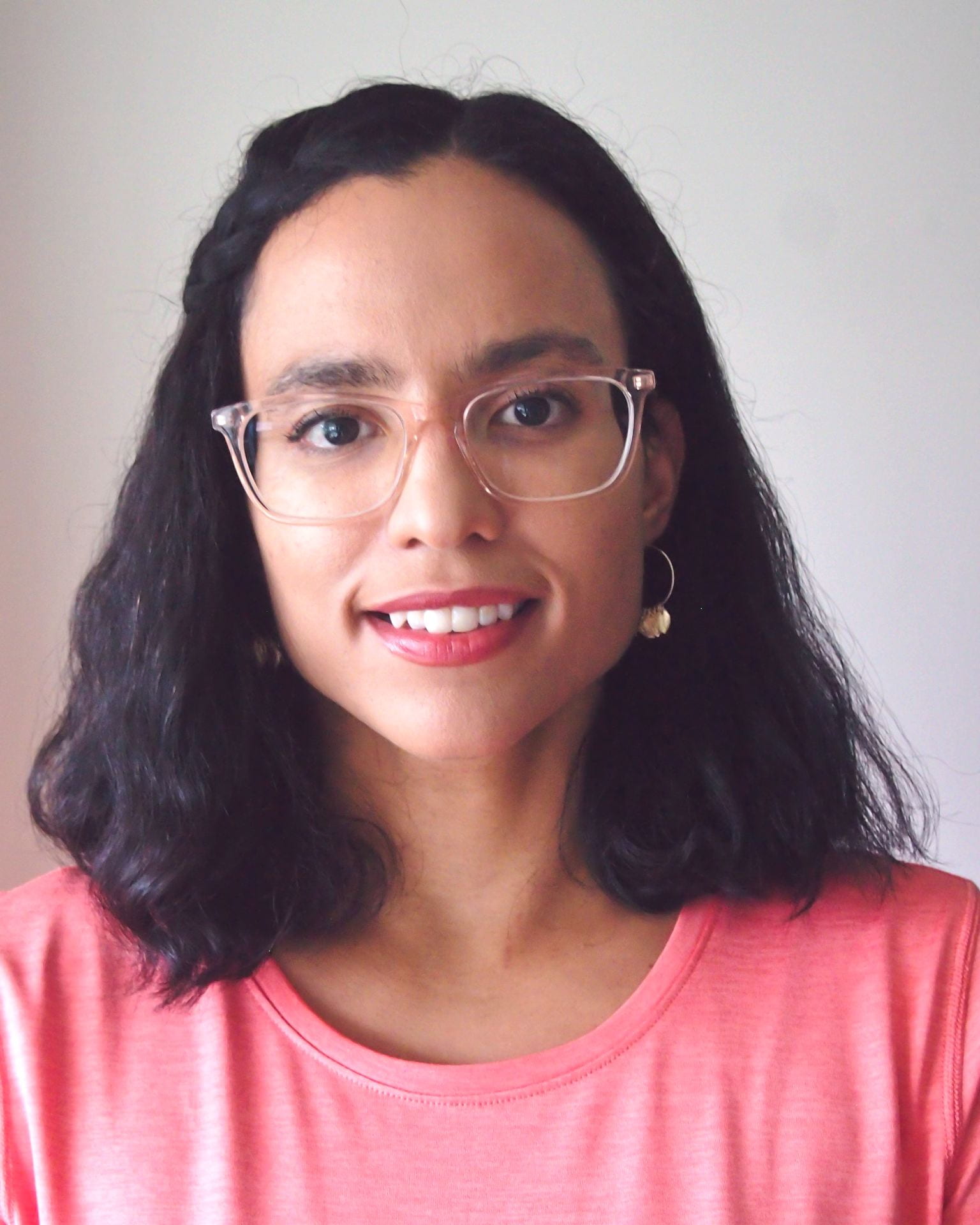
OLYMPUS DIGITAL CAMERA
NAME: Mercedes Spencer
TITLE: Assistant Professor
SCHOOL(S): School of Communication
DEPARTMENT(S): Communication Sciences and Disorders
WEB PAGE: https://readlab.northwestern.edu/
FACULTY BIO: Mercedes Spencer is an assistant professor in the Department of Communication Sciences and Disorders. She earned her PhD in Psychology from the Florida State University and completed her postdoctoral training in the Department of Special Education at Vanderbilt University. Her work uses a variety of approaches to investigate children’s language and literacy development and answer questions related to the prediction and classification of reading disorders and associated cognitive profiles and developmental trajectories. Specifically, she is interested in the contribution of executive function and attention skills to this process and aims to identify potential early indicators of reading comprehension difficulties to better predict and prevent future reading comprehension problems in children.
POTENTIAL SUMMER PROJECT SYNOPSIS: This summer we will be working on a project that aims to address the research-to-practice gap associated with the identification and treatment of children with specific learning disabilities in word reading and reading comprehension. This longitudinal project will involve second graders and their parents and teachers.
DESCRIPTION OF RESEARCH-RELATED SKILLS THE STUDENT WILL DEVELOP: Students will gain research experience in two key areas. First, the student will become familiar with several seminal studies in the fields of education, reading, and learning disabilities research. In addition to providing them with context for the aims of the project, this experience will also develop students’ understanding of key challenges and issues surrounding this work as well as the continued need for research focused on reading and learning disabilities. Second, the student will gain first-hand experience with being part of a research team focused on social-behavioral research (i.e., they will learn how to score and enter data from cognitive-behavioral assessments and work as part of a research team).
DESCRIPTION OF THE STUDENT ROLE: The student will be tasked with reading several research articles relevant to field (10%), scoring cognitive-behavioral assessments (40%), and entering item- and total-score assessment information into a REDCap database (40%). The remainder of their effort (10%) will be dedicated to lab/project meetings, during which the student will be asked to discuss any disagreements and/or data entry errors. These meetings will also provide the student with opportunities to raise questions and/or ask for clarification regarding their tasks.
LOCATION REQUIREMENTS: Some tasks must be completed in person in the lab (e.g., assessment scoring) whereas other tasks may be completed remotely (e.g., reading research articles). It is anticipated that the student will need to have in-person availability for approximately 80% of the time.
Shirin Vossoughi
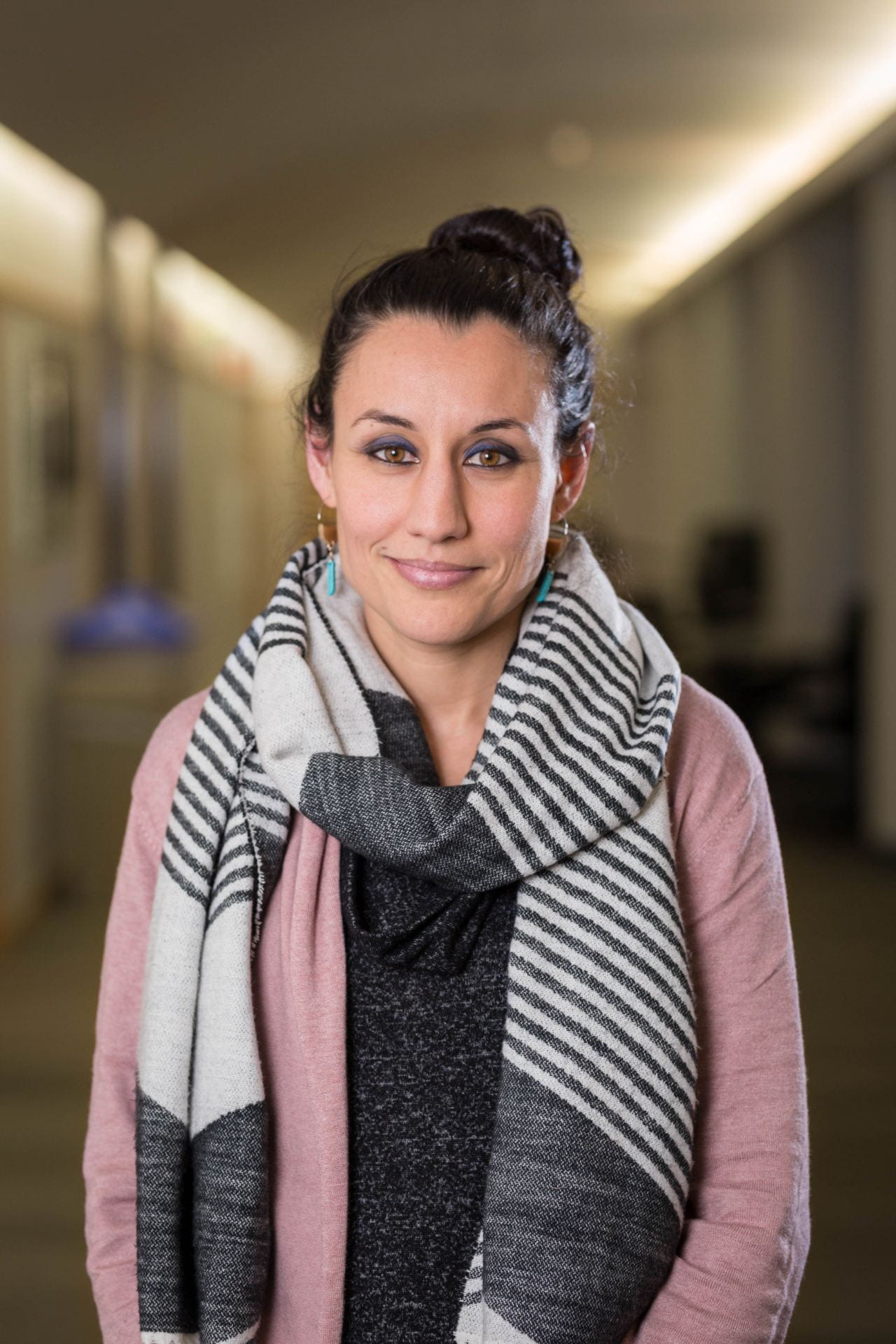
NAME: Shirin Vossoughi
TITLE: Associate Professor, Learning Sciences
SCHOOL(S): School of Education and Social Policy (SESP)
DEPARTMENT(S): Learning Sciences
WEB PAGE:https://sites.northwestern.edu/shirinvossoughi/
FACULTY BIO: I am an educator, mother, writer and associate professor of Learning Sciences at Northwestern University, where I draw on ethnographic and interactional methods to study the cultural, socio-political, and ethical dimensions of human learning. My research centers on learning environments that support young people to develop, question and expand disciplinary and artistic knowledge in ways that nourish educational self-determination. I am particularly concerned with understanding the forms of pedagogical mediation, ethical relations, and developmental trajectories that take shape within these settings. I take a collaborative approach to research and design, partnering with teachers, families, and students to study the conditions that foster educational dignity and possibility.
POTENTIAL SUMMER PROJECT SYNOPSIS: Design, teaching and research work with a local STEAM and storytelling environment serving middle school students (predominantly students of color) in Evanston.
DESCRIPTION OF RESEARCH-RELATED SKILLS THE STUDENT WILL DEVELOP: Participant observation, ethnographic documentation, field note writing, audio-video recording, and interviews with students, qualitative data analysis and participatory design research.
DESCRIPTION OF THE STUDENT ROLE: We have two weeks of training in June that includes support for how to work with our students and how to approach the ethnographic documentation. Then mid-June to end of July you would be working in our summer program full time as an educator and researcher.
LOCATION REQUIREMENTS: The first 8 weeks of the summer would require being present in Evanston and available to work full time. In August it is possible to work remotely to help clean and organize the data collected during the summer and begin thinking about data analysis. In the Fall we typically engage in a cycle of data analysis with our community partners once a week.
Robert Ward

NAME: Robert Anthony Ward
TITLE: Dr/ Professor
SCHOOL(S): Weinberg College of Arts and Sciences
DEPARTMENT(S): Cook Family Writing Program/ Black Studies
FACULTY BIO: Dr. Robert Anthony Ward is a Weinberg College Adviser and Assistant Professor of Instruction in the Cook Family Writing Program and the Black Studies Department at Northwestern University. He is also an ardent coffee enthusiast and aficionado learning to craft a flawless cortado. A proud Detroit native and first-generation college student, Professor Ward’s academic journey—from Cass Technical High School to earning his M.A. and Ph.D. in Educational Policy Studies at the University of Illinois—shaped his deep commitment to mentorship and equity in education. His research explores the intersections of race, market forces, and educational reform, with a focus on the impact of school privatization on high need communities in post-Katrina New Orleans. Through methods of storytelling in critical race theory and qualitative inquiry, Professor Ward’s teaching and advising philosophy centers on empowering lifelong learners to challenge systemic inequality through pedagogy and written reflection.
POTENTIAL SUMMER PROJECT SYNOPSIS: The research project I’m working on is tentatively titled, “Intentional Equity in Higher Education”. This project investigates the evolving role of Diversity, Equity, and Inclusion (DEI) and affirmative action policies in shaping access and equity within Illinois higher education, with a particular focus on Northwestern University. Recent efforts to dismantle DEI programs are not race-neutral; rather, they reflect a persistent pattern of resistance to racial equity in education. These developments underscore a central hypothesis of this study, intentionality (in policy design and implementation), which has been the most effective force in challenging structural inequities.
DESCRIPTION OF RESEARCH-RELATED SKILLS THE STUDENT WILL DEVELOP: Our research objectives are to: first, document and analyze the historical development and implementation of DEI and affirmative action policies at Northwestern University and peer institutions across Illinois. Then, Investigate the political and ideological forces driving contemporary opposition to DEI initiatives, as well as the impacts of these policies on student demographics and institutional culture. Finally, we seek to Develop a framework for intentional policy design that can sustain equity efforts amid legal and political challenges.
DESCRIPTION OF THE STUDENT ROLE: Research assistants will learn how to conceptualize and execute a research project from start to finish. This will include (but is not limited to):
- Collecting and organizing source materials
- Annotating and summarizing documents
- Maintaining a research database for cross-referencing themes
- Participating in coding and analysis under supervision
- Outlining and editing draft documents
LOCATION REQUIREMENTS: I anticipate the student to commit to weekly meetings. While I do not require that every meeting be in-person, periodic working in-person meetings must be an option. I require that students commit to tasks that they are able to do independently at their own pace. I intend the weekly meetings to guide and assess the students’ participation and work on the project.

